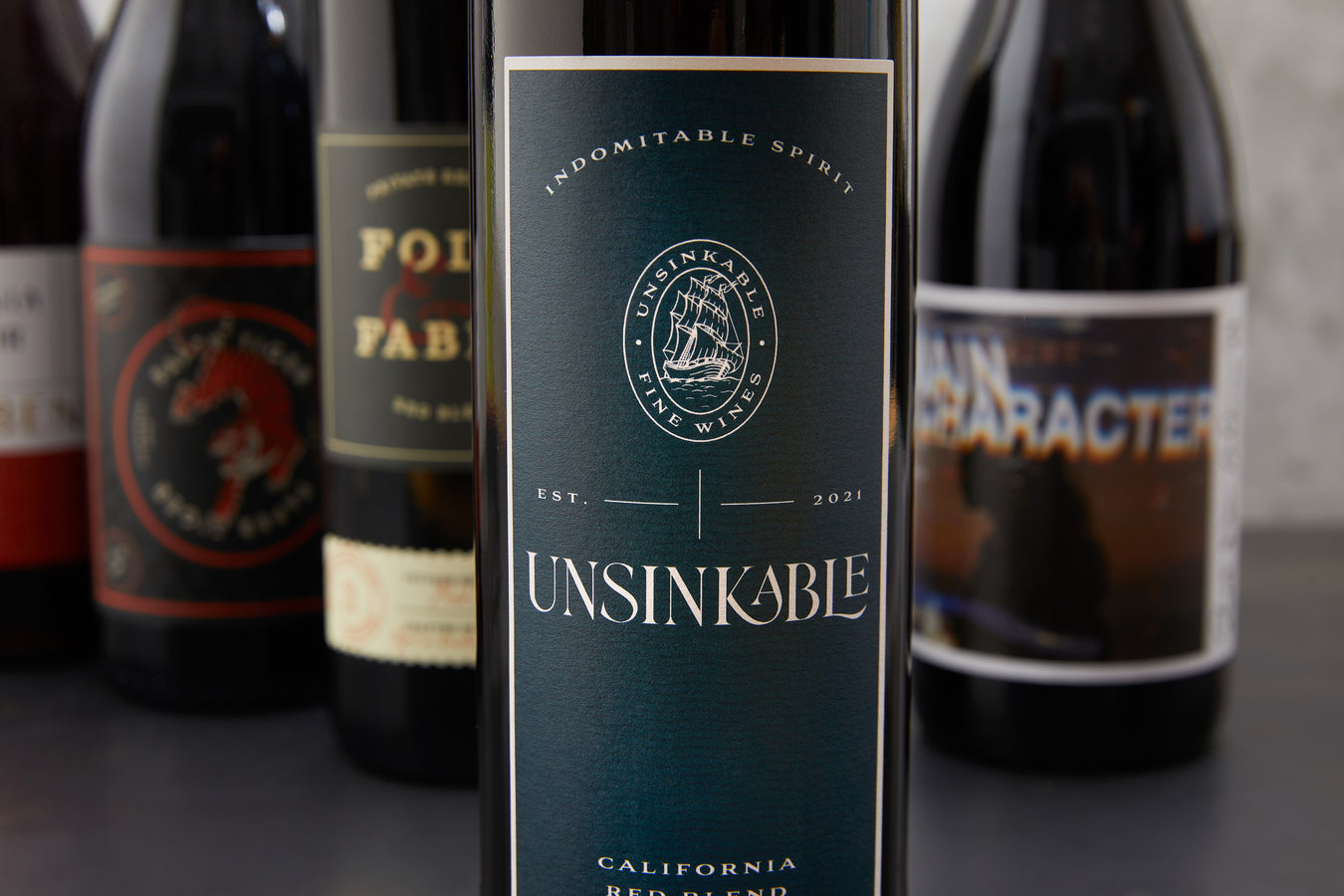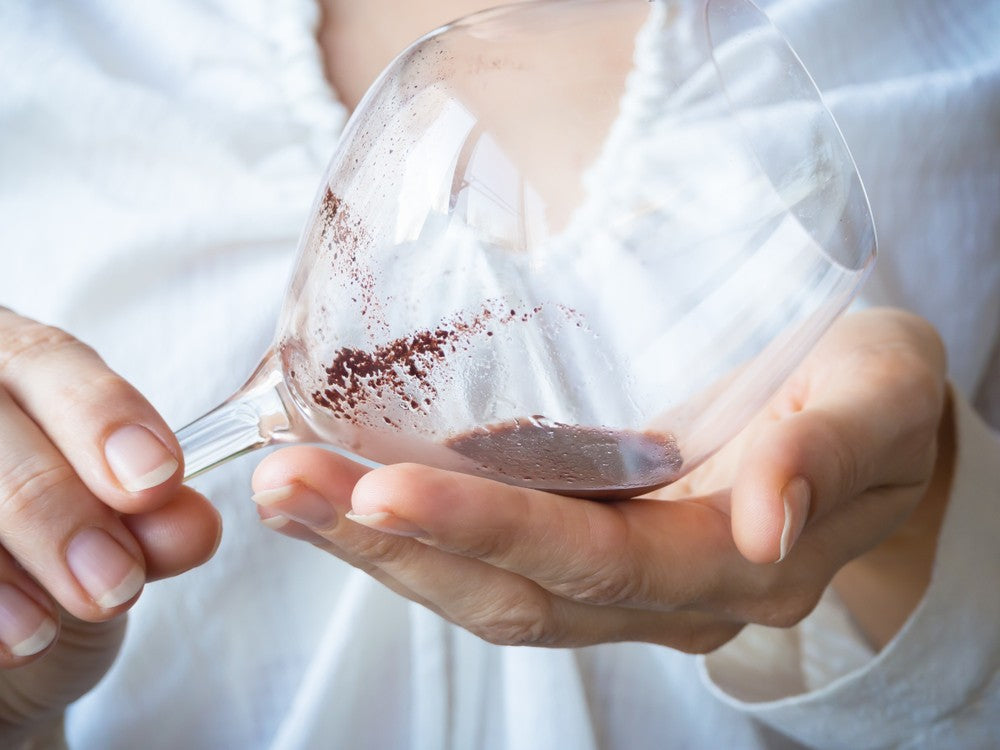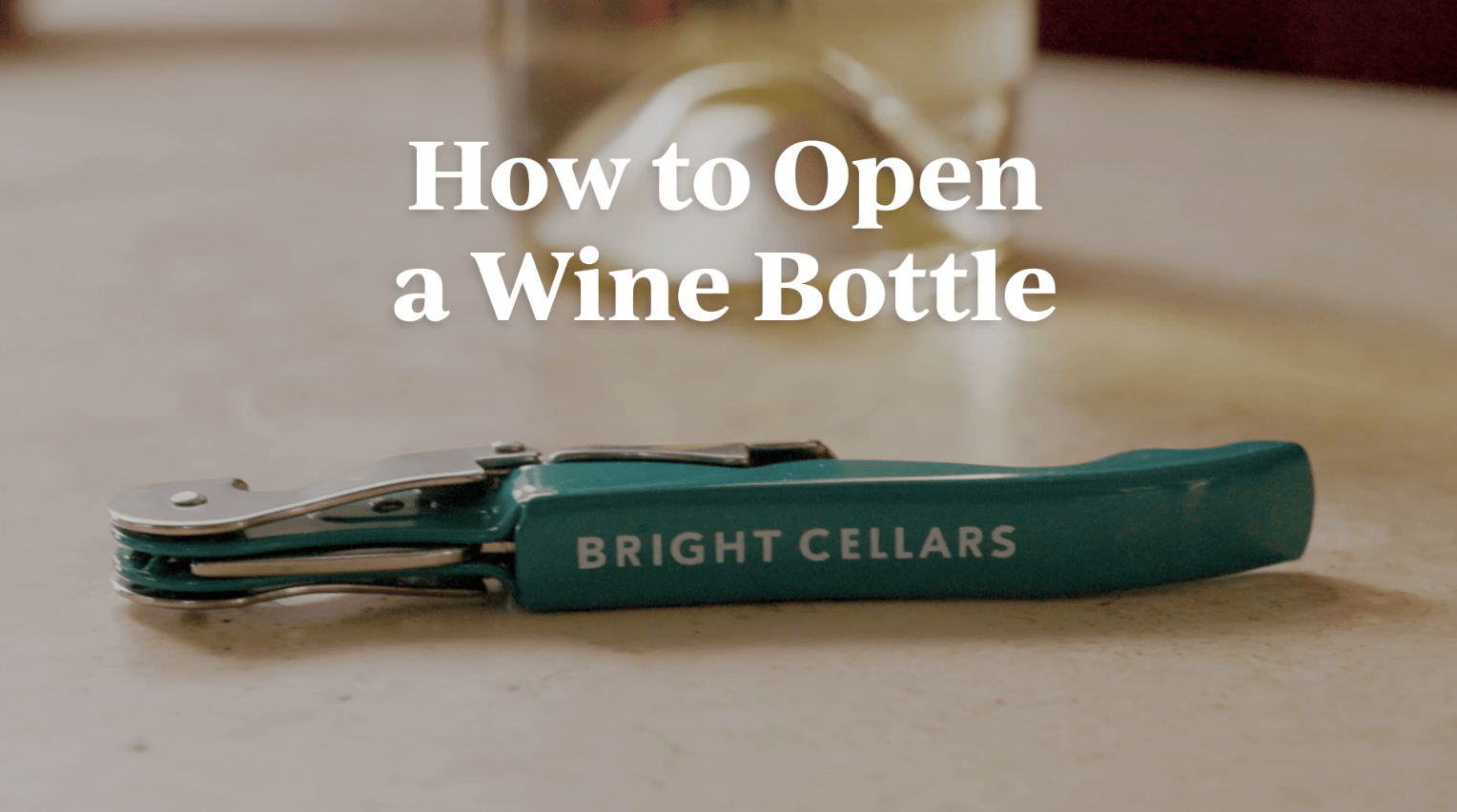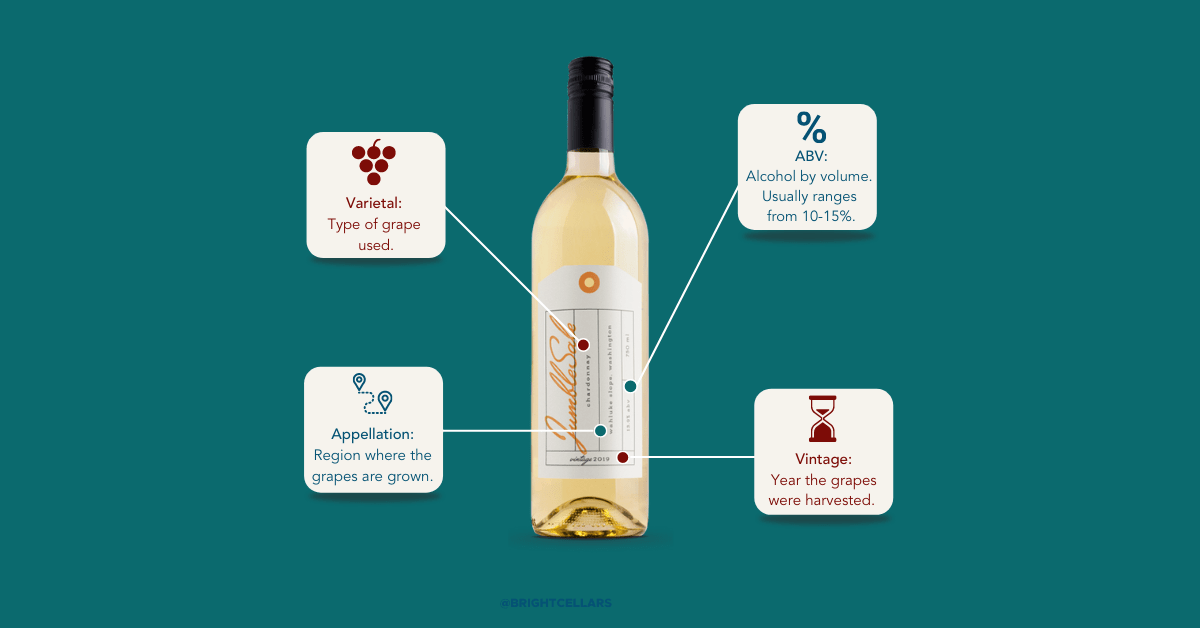
Sulfites get a bad rap in the wine world, but the truth is, they’re essential to the winemaking process and are generally less harmful than people believe them to be. Fun fact: your deli meat or dried fruit likely contain more sulfites than the bottle of Cabernet Sauvignon you’ve been dying to open. So, what are wine sulfites, and why are people so concerned with them?
Sulfites vs sulfates
Before we jump in, let’s clear up any confusion. What‘s the difference between sulfites and sulfates? Think back to your high school chemistry class. We know sulfur is the base, and -ate and -ite are the suffixes that get swapped out. That means, while sulfites and sulfates are both sulfur-based compounds, they are two very different things.
Sulfates are not involved in wine production, but sulfites are. Sulfates are mineral salts that can be found in soil and some plants or released from mines or mills.
Sulfites, on the other hand, are used as food preservatives. (If you’re looking for a handy mnemonic device, remember this - you could take a bite of a sulfite.)
What are wine sulfites and why are they important in winemaking?
Wine sulfites are used as a preservative to prevent wine from spoiling or browning. They kill unwanted yeast and help protect the wine from bacteria and fungi. They also help preserve the taste and color of wine. It’s important to note, they’re a natural byproduct of fermentation, so you can’t easily avoid them entirely.
That means most wines contain sulfites. Any wine with more than 10 parts per million (or ppm) is required to have “contains sulfites” on their label. For reference, dried fruits like raisins could contain up to 2000 ppm. So in the large scheme of things, 10 ppm isn’t all that worrisome.
In addition to naturally occurring sulfites, winemakers will often add sulfites to wine throughout the winemaking process to give the natural preservatives a boost. This prevents both spoiling and oxidation. It’s important to note that, as with most things in wine, this practice is highly regulated.
Why are people so concerned about wine sulfites?
It’s a classic case of mistaken proportion. Only 1% or so of the population is actually allergic to sulfites, so a sulfite allergy isn’t as common as people think. Sulfite allergies are pretty serious - they can cause hives, trouble breathing, or in more serious cases, death.
If you suspect you have a sulfite allergy, consult your doctor. Pay close attention if you have asthma, as there seems to be a connection between asthmatic people and people with sulfite allergies.
Do wine sulfites cause headaches?
There is actually no proven connection between sulfites and headaches. Wondering why your head is pounding after a glass? It’s likely something else is the culprit. Tannins, histamines, and sugar have been known to cause wine headaches. It’s a process of elimination, but well worth it to ensure you can enjoy your favorite beverage headache-free.
Which Wines Are Low Sulfite Wines?
Sulfite free wines aren’t all that sulfite free
We’ve already covered that sulfites are a natural byproduct of fermentation. That means, no matter how hard you try, you can’t remove all sulfites from wine.
The sad thing is, many companies capitalize on misinformation. They tout their ‘sulfite-free wines’ under the guise of preventing headaches (which we already discussed can be caused by other things like tannins, sugar, or histamines.)
It’s the same with low sugar wine. Did you know most wines are actually low in sugar? We wrote a very informative article on that exact topic if you want to learn more.
At Bright Cellars, we value wine education and always aim to equip you with the knowledge you need to make good decisions for you. Unlike our competitors, we would never pull the wool over your eyes or mislead you simply to sell more wine. That’s one of the many reasons we believe our monthly wine club is the best wine subscription on the market.
Look for ‘no sulfites added’
Instead of looking for the phrase ‘sulfite free wine,’ you’d be better off looking for ‘no added sulfites.’ Remember that winemakers often add sulfites to boost preservation? If you’re looking to cut down your intake, look for wines with no added sulfites.
Red wines are generally lower in sulfites
White wines generally have more added sulfites than red wines. Why is that? Red wine has more tannins which means it has more antioxidants. These antioxidants help naturally preserve the wine, so winemakers may feel less pressured to add additional sulfites. But every wine is different, so make sure to check the label
So, really, should I be drinking low sulfite wine?
If you’ve gotten this far and you still have a little inkling in the back of your mind that won’t go away, we’ll tell it to you straight.
Those who have a true sulfite allergy or those who experience sulfite sensitivity symptoms would most definitely benefit from ‘no added sulfite’ wine.
Otherwise, there’s not a whole lot of benefit to drinking low sulfite wines. You’d be better off examining your diet and giving up other processed foods like dried fruit, jam, canned fruits and veggies, condiments, or deli meat that have much higher levels of sulfites.
In Vino Finito
Have questions? We’d be shocked if you didn’t. Drop them in the comments, and we’ll be happy to answer!























































